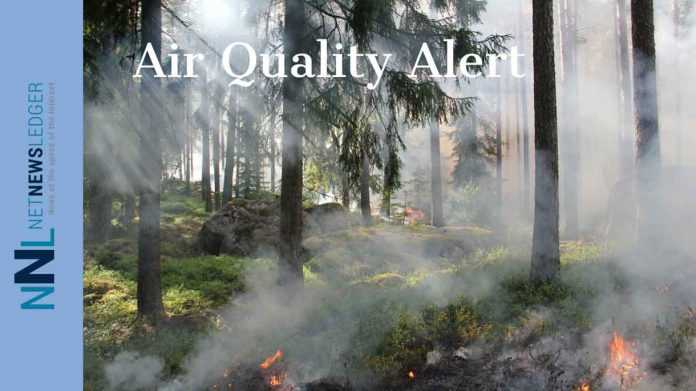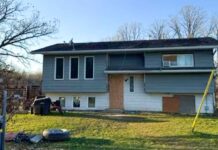THE PAS – WEATHER – Smoke from forest fires north of Hudson Bay, Saskatchewan continues to elevate AQHI values.
Improvement in AQHI values is expected to spread eastward through the day as winds shift.
Individuals may experience symptoms such as increased coughing, throat irritation, headaches or shortness of breath. Children, seniors, and those with cardiovascular or lung disease, such as asthma, are especially at risk.
Special air quality statement in effect for:
- North and South Moose Lake incl. Moose Lake Res.
- The Pas Cormorant Westray and Wanless
Elevated pollution levels are expected or occurring.
Due to the smoky conditions, individuals living in or travelling to the above noted areas are advised to be aware of potential health concerns that can be associated with current air conditions. In these current conditions, even healthy individuals may experience sore eyes, tears, coughing and a runny nose.
In areas affected by smoke from wildland fires, Manitobans are encouraged to:
– limit outdoor activity and/or strenuous physical activity; if breathing becomes difficult or uncomfortable, stop or reduce the activity
– reduce exposure to smoke by staying indoors or moving to areas with cleaner air, as conditions can vary dramatically by area
– turn off furnaces and air-conditioning units that may draw smoke indoors
– keep indoor air cleaner by avoiding smoking or burning other materials
People at higher risk include young children, the elderly, pregnant women and people with heart or lung conditions (particularly asthma), and therefore should avoid as much exposure to smoke as possible.
Manitobans with health questions or concerns can contact their health-care provider or call Health Links – Info Santé at 204-788-8200 or toll-free at 1-888-315-9257. More information on the health effects of smoke is available at www.gov.mb.ca/health/publichealth/environmentalhealth/smoke.html.
If you or those in your care are exposed to wildfire smoke, consider taking extra precautions to reduce your exposure. Wildfire smoke is a constantly-changing mixture of particles and gases which includes many chemicals that can harm your health. For more details, please consult www.canada.ca/en/environment-climate-change/services/air-quality-health-index/wildfire-smoke.html.
Visit www.airhealth.ca for information on how to reduce your health risk and your personal contribution to pollution levels, as well as for current and forecast AQHI values.








